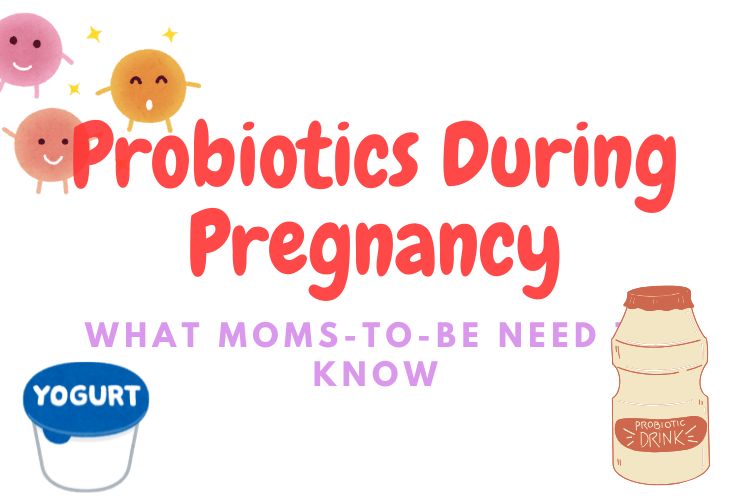Probiotics During Pregnancy Filename

🦠 Probiotics During Pregnancy: What You Need to Know
Are they safe? Do they help? And which ones should you choose?
If you’re expecting, you’ve likely heard about the benefits of probiotics — those “good bacteria” that support gut health. But are probiotics safe during pregnancy? And do they really make a difference? Here’s what the science says — and what every mom-to-be should know.
🌱 What Are Probiotics? Probiotics are live microorganisms (mainly bacteria and yeast) that support a healthy balance in your gut. They’re found in foods like:
-
Yogurt with live cultures
-
Kefir
-
Sauerkraut
-
Kimchi
-
Miso
-
Fermented pickles
-
And in supplement form
They help maintain a healthy gut microbiome, which plays a big role in digestion, immunity, and even mental health.
🤰 Are Probiotics Safe During Pregnancy? Yes — for most people, probiotics are considered safe during pregnancy. According to multiple studies and reviews (including those published in journals like Nutrients and The American Journal of Clinical Nutrition), probiotics are generally well-tolerated in healthy pregnant individuals. They are not associated with any increased risk of miscarriage, birth defects, or complications when used properly. 🛑 Always check with your healthcare provider before starting a new supplement — especially if you have a compromised immune system or other medical conditions.
✅ Proven Benefits of Probiotics During Pregnancy
Here are evidence-backed benefits of taking probiotics while pregnant:
- Supports Digestive Health Hormonal changes can slow digestion, causing bloating, gas, and constipation. 👉 Probiotics may help restore gut balance and keep things moving.
- Reduces Risk of Gestational Diabetes Some research suggests probiotics can improve blood sugar regulation, potentially lowering the risk of gestational diabetes when taken in the second or third trimester.
- Helps Prevent Vaginal Infections Lactobacillus strains (a common probiotic) can help prevent bacterial vaginosis and yeast infections, which are more common during pregnancy.
- Supports Baby’s Immune System A healthy maternal gut can influence the baby’s developing immune system, possibly reducing risk of eczema, allergies, or asthma later in life.
- May Help With Nausea & Inflammation Emerging studies suggest certain probiotic strains can ease morning sickness and reduce gut inflammation.
🍼 Best Probiotic Strains for Pregnancy Look for these research-supported strains:
-
Lactobacillus rhamnosus GG
-
Lactobacillus acidophilus
-
Bifidobacterium lactis
-
Lactobacillus reuteri
-
Many prenatal-specific probiotic supplements will include these.
🛒 Probiotics in Food vs. Supplements Food-first approach: If you tolerate dairy and fermented foods, start by including 1–2 probiotic-rich foods daily.
Supplements: Choose a third-party tested supplement with clearly labeled strains and CFUs (10–30 billion is typical). 📌 Choose a brand designed for pregnancy, or ask your prenatal dietitian for a recommendation.
💬 Final Thoughts Probiotics can be a helpful, natural support during pregnancy — especially for digestion, immunity, and vaginal health. But the best results come from combining probiotics with a balanced diet, hydration, and fiber-rich foods to truly nourish your gut (and baby’s!). Always check with your doctor or dietitian before starting a new supplement — every pregnancy is unique.
 Subscribe to receive my FREE Nutrition for Eating Out Guide!
Subscribe to receive my FREE Nutrition for Eating Out Guide!